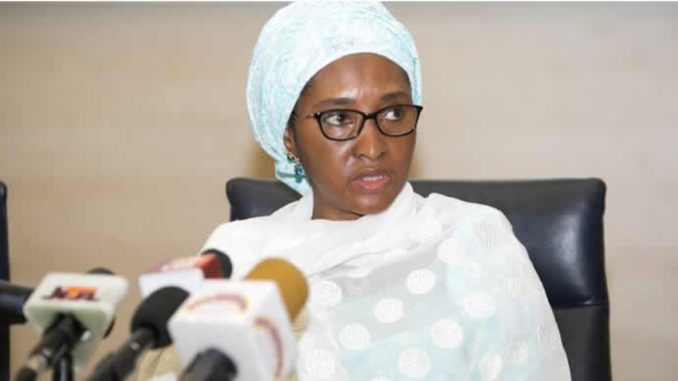
JUST like its predecessors, the Muhammadu Buhari administration has become entangled in the Excess Crude Account controversies. Contentiously, the savings account plunged dramatically at the tail end of 2018 to less than $1 billion, according to the latest official figures. For the administration, the frivolous abuse is a poor advertisement of its mantra to fight corruption and enthrone rectitude in national life.
In truth, there is more than meets the eye in the operation of the ECA, eliciting legal and integrity questions about its raison d’être. At the beginning of 2018, oil traded for $69 per barrel. Nigeria’s major source of income later hit $81pb last October, well above the $51pb budget benchmark for the year. With this, the ECA, which, by regulation, can only be drawn down after a shortfall in oil prices for three consecutive months, was thus expected to accrue significantly. Oddly, it did not.
Instead, temporarily, it jumped to $2.09 billion last October; it trended up to $2.31 billion a month after. The catch is that, by December, it had plummeted to $631 million, the Federal Account Allocation Committee, which distributes incomes to the three tiers of government, stated. It means that about $1.68 billion was withdrawn in just one month. Such stealthy withdrawals from the ECA are not new.
The explanation from the government: “The final payment for the Paris Club Refund to states was made and the figure was deducted and that is what accounts for the difference,” Mahmoud Dutse, the permanent secretary, Ministry of Finance, stated. For an explanation, this is obscurantism. Something is seriously wrong when such a huge amount is withdrawn without due process.
In other climes, toying with public finances earns concerned officials loss of positions, disgrace and lengthy jail terms. Nigeria ought to enthrone this culture of transparency and accountability when it concerns the public till. In December 2017, the Federal Government and the state governors had agreed to withdraw $1 billion from the ECA. The money was recently invested in hardware purchase to fight the Boko Haram war and insecurity in the country.
Save for the Olusegun Obasanjo administration, the abuse of the ECA has become serial. The administrations of the late Umaru Yar’Adua and Goodluck Jonathan depleted the account wilfully. To them, the ECA was more like a slush fund that presidents and governors dipped hands into with scant regard for rules or probity. It is deeply disturbing that the Buhari government has not demonstrated a better handling of the ECA.
Obasanjo established the ECA in 2004 to promote savings. Every dollar above the annual oil benchmark was deposited there. Despite the prevalent average oil prices then and strident opposition from belligerent state governors, that administration built up the ECA to $20 billion at the end of its tenure in 2007. Unfortunately, the trajectory was not sustained.
Oil prices headed north, but, myopically, his successors did not act responsibly. Yar’Adua and Jonathan vandalised the account with nothing to show for it. At a time, Ngozi Okonjo-Iweala, Jonathan’s Minister of Finance, and Adams Oshiomhole, then the governor in Edo State, publicly traded harsh words over the ECA spending. Oshiomhole said, as of November 2014, $4.1 billion was there, but the following month, only $2 billion was left. The Federal Government scandalously claimed it had used the money to fund petrol subsidies.
In reality, the money belongs to the federal, state and local governments. Governors rely on the legal lacuna in Section 80 of the 1999 Constitution, which dictates that all income of government should be paid into the Consolidated Revenue Fund of the Federation to always ask that the money be shared. They did this successfully in 2010 when Jonathan was just assuming office as acting President.
A 2017 report by the New York-based Natural Resource Governance Institute says that among 33 resource-rich countries, Nigeria’s ranks among the most poorly governed Sovereign Wealth Funds. In contrast, other oil producing countries are strategically saving for the rainy day, using their oil income wisely. Essentially, the practice is to invest their oil income in SWFs. Some countries like the United Arab Emirates and Saudi Arabia even have more than one SWF account.
As of August, war-torn Libya had $66 billion as savings in its SWF, says Statista, an online portal. Algeria’s $7.6 billion and Angola’s $4.6 billion are far higher than Nigeria’s fluctuating $631 million, though the country produces more crude than the duo. Certainly, it is very different from Norway’s $1.03 trillion, the UAE’s $683 billion and Saudi Arabia’s $494 billion. Alaska and Texas, two American states, have SWFs of $65.7 billion and $37.7 billion respectively. With only $1.4 billion in its SWF, this leaves Nigeria high and dry.
With this ugly picture, the rational course of action is to scrap the ECA. The excess crude oil revenue should be paid into the CRFF and shared as and when due. Any tier of government can go ahead to save its own. In 2012, Bayelsa State did that, founding the Bayelsa Development and Investment Corporation. In 2018, the account stood at $1.5 billion, more than Nigeria’s.
Any other option is a subtle way of promoting corruption and slush funds for a tiny clique in government. Whenever the money is to be shared, the national and state assemblies should insist on its being appropriated.
END

Be the first to comment